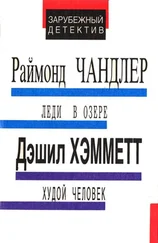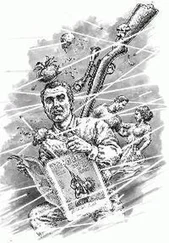Аврам Дэвидсон - Peregrine - primus
Здесь есть возможность читать онлайн «Аврам Дэвидсон - Peregrine - primus» весь текст электронной книги совершенно бесплатно (целиком полную версию без сокращений). В некоторых случаях можно слушать аудио, скачать через торрент в формате fb2 и присутствует краткое содержание. Год выпуска: 1971, ISBN: 1971, Издательство: New York : Walker, Жанр: sf_all, на английском языке. Описание произведения, (предисловие) а так же отзывы посетителей доступны на портале библиотеки ЛибКат.
- Название:Peregrine : primus
- Автор:
- Издательство:New York : Walker
- Жанр:
- Год:1971
- ISBN:0802755461
- Рейтинг книги:5 / 5. Голосов: 1
-
Избранное:Добавить в избранное
- Отзывы:
-
Ваша оценка:
- 100
- 1
- 2
- 3
- 4
- 5
Peregrine : primus: краткое содержание, описание и аннотация
Предлагаем к чтению аннотацию, описание, краткое содержание или предисловие (зависит от того, что написал сам автор книги «Peregrine : primus»). Если вы не нашли необходимую информацию о книге — напишите в комментариях, мы постараемся отыскать её.
Peregrine : primus — читать онлайн бесплатно полную книгу (весь текст) целиком
Ниже представлен текст книги, разбитый по страницам. Система сохранения места последней прочитанной страницы, позволяет с удобством читать онлайн бесплатно книгу «Peregrine : primus», без необходимости каждый раз заново искать на чём Вы остановились. Поставьте закладку, и сможете в любой момент перейти на страницу, на которой закончили чтение.
Интервал:
Закладка:
“I fear I have already breakfasted,” he murmured, faintly. “I shall save it for supper—if, even then, I can bring myself to part with such a token of the esteem of your Maleficent Majesty by eating it . .
The horsemen guffawed, and even His Maleficent Majesty smiled his amusement. “You no likee,” he said. “Likee slabe food, bread and beef. Arright.” At a gesture the horsemeat was removed from the bard’s slack hands, and once again was transformed into a saddle. The horde-hetman’s tiny red eyes moved to his fellow-monarch. “Caesar-king gib you six piecee gold instead,” he said.
The caesar-king did indeed give Appledore six pieces of gold, but he moved as though he would have sooner parted with six fingers. At this Eugenius stepped forward and, raising high his hand, solemnly made the Sign of the Snake. The hordesmen reverently bowed their heads . . . briefly.
“What you want, Snake-sage?” asked their king.
“If the King would kindly have his men harness their horses
to this vessel we may yet bring her off the sand-bank,” the Eddessan suggested.
Attila IV, Grand Hetman of the Hun Hordes, Scourge of God, King of Hun Horde Number Seventeen, and Ally of the Central Roman Empire, scowled very suddenly, causing furrows to appear in the very narrow place between his scalp and his eyes. “What you think you hire teamsters, sunnamabitchgoddamn?” he enquired. “You makes insult? You never hear of Death of One Thousand Cuttees? By damn, maybe I makee spleen belonga you walkabout in fire too much!”
The Eddessan was very pale, but long years of facing menace at the hands of all sorts and qualities of men of all sorts of tribes and tongues had helped to harden him against present threat and danger. He said nothing, allowing the barbarian, not to say savage, monarch’s own spleen to be vented as he might will. And, evidently there was much pent up in the Hun’s organ. He began with the complaint that his reasonable and respectable offer of marriage to the sister-in-law’s great-niece’s cousin of some recently deceased caesar of the East had not even been received with the contumely and scorn which his own might and rank entitled him, but had been merely and unforgiveably ignored. He went on to complain that his share of the perpetual tribute which the Eparch of Pappadoupolis had promised his grandfather had been paid in unroasted pumpkin seeds instead of specie. He expressed his deep offense, not to say bitterness, that at his last attempt to enlist the Imperial support for which his status as an allied King entitled him in order to press his rightful claims to the kingship of Hun Horde Number Sixteen, the gatekeepers at Ravenna had suggested that he leave his name and return during the office hours for minor claimants. The list of grievances was long and complex, and ended with the grudging admission that of all the caesars with whom he had contact, only the one aboard, to wit Augustus XXV, had treated him with civility.
“And what he give me?” he demanded. “Parade! —You think I eat parade? You think 1 feed Hun Horde Sebenteem with Parade?”
The august caesar-in-exile (no one had thought it well to advise the Fourth Attila of Stingy Gus’s recent change in status . . . or, at any rate, in residence) kept a diplomatic silence. Peregrine secretly sympathized with the bowlegged little king. Hun Horde
Number Seventeen was probably not one of the larger Hun Hordes, indeed, by Peregrine’s actual and silent count, it numbered a grand total of eleven men, two of whom were riding postern; plus three moldy-looking yourts now lumbering into view drawn by a scrawny ox a-piece. He was certain that something more than a parade must be needed to feed even such a small horde, and he rather marveled at King Attila’s refusal, however reluctant, to allow any pillage of the vessel bearing someone whose technical status as ally had never resulted in anything more rewarding than a parade.
Still, Peregrine conceded, though Attila IV might now be feeling only the non-nutritional value of a parade, it must be better than nothing, when you are a very small-gruel Hun king, at least to get every now and then a parade at no extra cost. It might be that something of this sort now entered the sorely-vexed mind of Attila, for he wound up his complaint by flinging at Eugenius the words, “You think you catchee great-grandchilds Attila the Great for pull your boat for penny-money?”
“Oh certainly not, Your Terrible Majesty,” the Eddessan said, very promptly. “For I have just been obliged to declare a demurrage by virtue of our having been heavy-laden and grounded due to certain cargo, plus perils of other princes and potentates; and for the service I have been obliged to ask I would certainly not offend any of the great-grandchildren of Attila the Great by offering his men coppers for the assistance we need,” and with that and ignoring the half-outraged, half-agonized looks of Stingy Gus, he kicked the nearest baggage-bag: and it clinked loudly.
With little more delay the hordesmen pressed not only their horses but their three boney oxen into the task of dislodging the Homoiousios from the sandbar—in fact, they even bent their own wiry bodies into the task, accompanied by a cheerful, wailing chant which—so their king informed the foreigners commemorated the burning of a basilica in South Burgundy with the entire congregation still inside: and whenever they showed signs of languishing, Eugenius would give the moneybags another kick, Augustus the Penurious would wince, and Hun Horde Number Seventeen would throw itself and its beasts with renewed zeal into the task at hand.
At length the barge floated freely once more, its captain col
lected his demurrages and his penalties, the Horde was paid its honorarium, and almost everybody was and looked very pleased.
“Attila keepee word,” said Attila. “Attila no lootee, no killee, no rapee, all-same everysing sip-sape.”
At mention of the last horror from which the Hun King had abstained, Sister Pulchrituda started, and seemed to emerge from a revery. “Far be it from me,” she now said, coming forward, “to stand between the terrible Huns and their customary customs.”
Matron Eudoxia made a grab for her, but even before she caught her, the King of the Huns had made his final judgement. “You too skinny,” he said. But some thought had evidently entered his mind, sparked, perhaps, by Pulchrituda’s words, and perhaps partly by Eudoxia’s gesture. Her it was whom he addressed next.
“Hey! Fat Roman Mamma!” he said. “You likee eat Hun food?”
Eudoxia heaved a huge sigh, and gave Peregrine a sidelong glance. “Oh, the tribulations which a Christian must expect to endure in this vale of tears!” she observed. And, in an undertone, “It would be a sheer shame to allow all of that good gold to remain in the hands of the unregenerate. —Girls!” she said, crisply, pushing her hair-do into place, “—Company!”
t t t t
There was no wind, and, for the moment at least, no one seemed to feel the need of one. The barge floated slowly down the river. Hun Horde Number Seventeen—or part of it, anyway— ambling in the shallows and keeping up with her. The yourts lurched behind, and from them came an occasional whoop, hoot, or yell intended to be blood-curdling; also, now and then, a rather ladylike scream, and sometimes even a giggle.
Eugenius was keeping his eyes, and perhaps, by his silence, his mind, strictly on the work of navigation. Appledore had broached a keg of soused beef and was restoring his energies, depleted as they had been by his unwonted exertions as a capella
bard. Stingy Gus, long deep in thought, now beckoned to Peregrine, who, nothing loath, approached the ex-ruler of Nimrunna.
“Young man,” said the latter, “you seem to be the most sensible person aboard this floating circus, except of course for myself. I have observed you engaged in the productive task of sharpening your sword, for example. Also, I recollect with respect how you declined to accept for your Imperial scrip the price which the Bursary in its official capacity was obliged to offer. A fool and his money are soon parted, as I believe Homer remarks somewhere, or is it the Proverbs of King Solomon? No matter; and I am no fool. Nor, I believe, are you.”
Читать дальшеИнтервал:
Закладка:
Похожие книги на «Peregrine : primus»
Представляем Вашему вниманию похожие книги на «Peregrine : primus» списком для выбора. Мы отобрали схожую по названию и смыслу литературу в надежде предоставить читателям больше вариантов отыскать новые, интересные, ещё непрочитанные произведения.
Обсуждение, отзывы о книге «Peregrine : primus» и просто собственные мнения читателей. Оставьте ваши комментарии, напишите, что Вы думаете о произведении, его смысле или главных героях. Укажите что конкретно понравилось, а что нет, и почему Вы так считаете.






